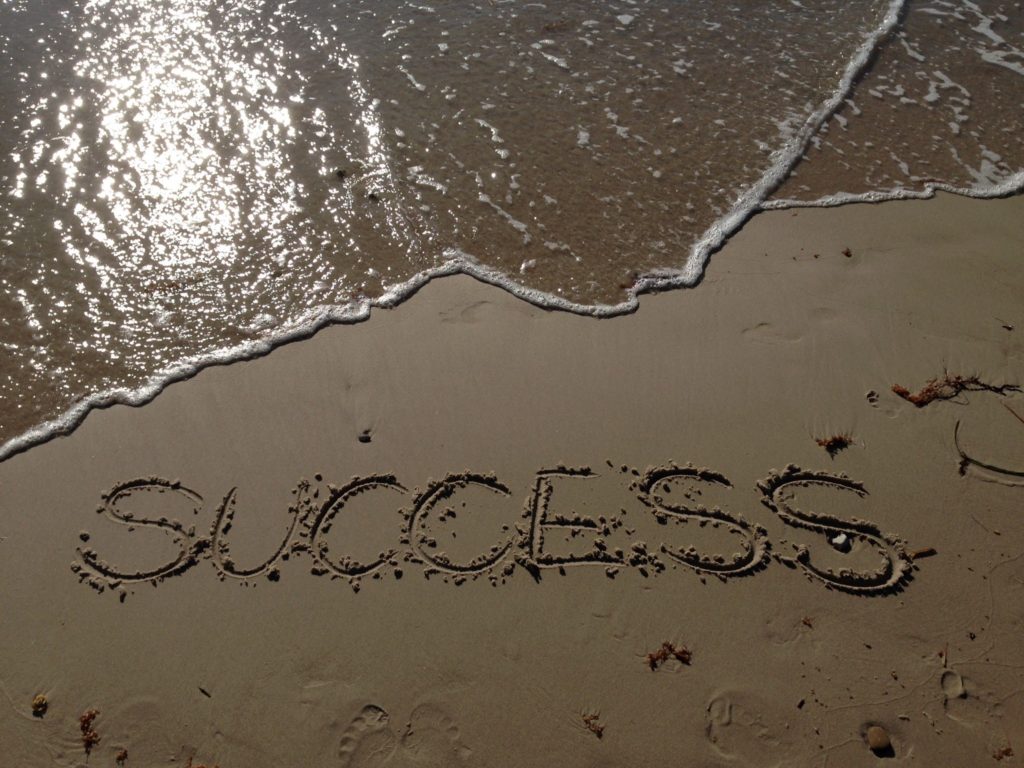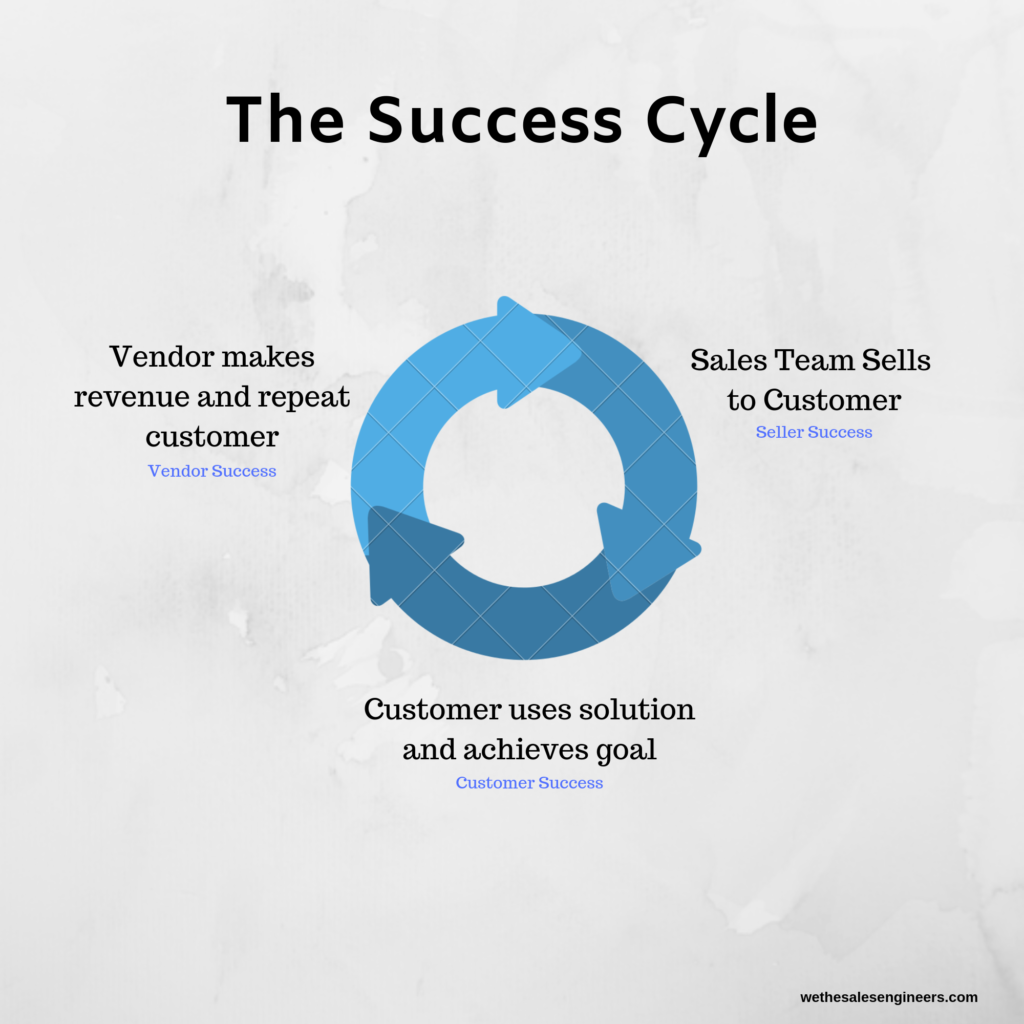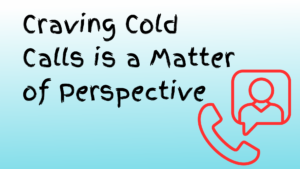
Customer Success and Vendor Success, are They Aligned?

By Ramzi Marjaba
I had a brief stint as a Salesperson in my previous job after my actual salesperson got promoted to Director and we were looking for someone to take over for him. While serving my six-month sentence working directly for the Director I received a Purchase Order (PO) from a company to purchase support for some legacy product. This PO seemed automated. It was something in their system that said, it is that time of year, send PO for support. The problem was that those products were no longer supported. I told my Director that we need to reach out to these folks and explain the situation. He disagreed and accepted the PO. I moved back into my previous role as a Sales Engineer shortly after.
They hired a new Salesperson after a few months from this incident. An honest guy, one who cares about his customers. After less than a year of being on the job, he got that automated PO. He called me to discuss and we talked about what had happened the previous year. He did not accept the PO and tried to reach out to the customer to set the record straight and attempt to bring their legacy products up to date.
Companies always talk about how we want to be partners with our customers. If that is the case, why can some sellers make it seem that our interests (the vendors) are so different than our customers’ interest?
On the other hand, if vendors have a partnership with customers, why are they threatened that the customer would go to a direct competitor with a fairly similar solution?
This post is dedicated to showing the obvious, why the customer’s success, seller’s success, and the vendor’s success should align, and how we can accomplish just that.

Maybe I should start with defining a few things, and these are my opinions of what the definition should be. If their actual definition is different, well someone should change them to match my definitions.
1- Customer Success: the Customer buys product/solution from us, uses it to their benefit and the equipment helps the customer achieve their goal.
2- Seller Success: Achieving quota. I like to add the following sentence: “while helping the customer become successful”
3- Vendor Success: Making enough money to pay their employees, invest in R&D, and pay their shareholders.
Why don’t I see how these 3 successes align?
Customers usually buy products, services, or solutions for a reason. Success for Customer X is different than Customer Y. Some customers may have more defined criteria for success, others just want to be able to do something they were not able to do in the past. For example, let’s say today you are the customer and you want to buy a vehicle that would take you from point A to point B. If that is the case you are looking for a reliable car that will not break down often and maybe has air conditioning and heating so you would not reach your destination soaking wet. That is one set of criteria that will allow you to make a decision to buy let’s say a basic Honda Civic with manual transmission and AC. That could be a success for you.
What if another customer might want a similarly reliable car with automatic transmission and the ability to listen to We The SEs Podcast on the car radio. Now they are looking at another Honda Civic, automatic transmission with a Bluetooth enabled entertainment system for a little bit more money. That could be a success for the other customer.
Now, what if the criteria were not set right. What if you didn’t care about the Bluetooth radio, but you are usually driving through traffic for forty-five minutes to an hour in each direction daily, wouldn’t a better solution for you be an automatic car? Who’s job is it to set that criterion? You, or the Sales Engineer that you buy it from? If you are unhappy, who’s at fault? Let me ask it this way, if you are unhappy and you blame the seller for not doing a proper discovery and proposing a solution that fits your needs, would you buy from them again? I don’t think this question can be any more leading.
On the other hand, what if you find the car of your dreams, the car that would solve all your problems. You then proceeded to negotiate the price down so much that it does not make sense for the company to actually sell it to you. The salesperson who just spent time with you trying to sell this car, well, it’s in their best interest to sell you the car either way IF they are paid on revenue. That would mean quota relief and commission. The vendor organization, not so much. They will have to pay the salesperson commission for a losing deal. So they do not approve.
Going back to the example of you buying the manual Honda Civic, the seller was successful, until you came back mad at him for selling him a manual car. Note that in the car world this is easy to spot. When we are talking technology, there are a billion and one things that the solution may be able to do or not do. That is why we, Sales Engineers, have a job. So in that case, we have momentary success. We got 1 transaction with this customer. However, it is a known fact that the best customers are the ones you already have.
So far we’ve discussed when the customer is happy, when the seller is happy, but not when the seller’s organization as a whole is happy.
In order to make the vendor happy, the vendor has to make money. How can the vendor make money? Well, by not allowing the Salesperson to give discounts that would put the company in the red. Why would the customer buy if the salesperson is not giving huge discounts? I hate to say this, this lands very highly on the broad shoulders of the Sales Engineer. Although the salesperson is there to help build a vision and discuss the value of the product/solution/service with the customer, it is the Sales Engineer who is doing the demo or running the proof of concept. The Sales Engineer is not discussing the value, he or she is showing the value.
All this to say that the best way for customer, seller and vendor success is for the Sales Engineer to do their job right. No pressure.

If you want to learn more about Customer Success, check out my podcast with Bill Lapp
#50 What is a Customer Success Engineer? with Bill Lapp
Stay in the loop
Subscribe to get our latest content by email.
Success! Now check your email to confirm your subscription.


